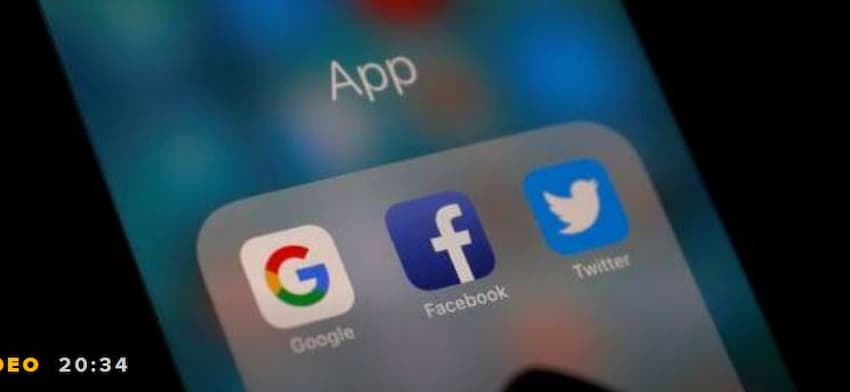Without the telcos, without the network, there is no Netflix, there is no Google,” Michael Trabbia, chief technology and security officer of Orange has said as EU telcos ramp up pressure on Big Tech to pay for the internet.
Telecom groups are ramping up pressure on EU regulators to consider a framework where the companies that send traffic over their networks are charged fees to fund infrastructure upgrades.
Tech giants like Netflix and Google have vehemently rejected the moves by the EU to implement network fees for them which would mean that the tech giants will now pay fees as compulsory compensations for telecommunication companies in the EU who provide the internet that the tech giants run on.
The tech giants see such tax compensation to telcos as an internet traffic “tax.”
The gist:
Tensions between European telecommunications firms and U.S. Big Tech companies have crested, as telecom bosses mount pressure on regulators to make digital giants fork up some of the cost of building the backbone of the internet.
European telcos argue that large internet firms, mainly American, have built their businesses on the back of the multi-billion dollar investments that carriers have made in internet infrastructure.
According to CNBC report, Google, Netflix, Meta, Apple, Amazon and Microsoft generate nearly half of all internet traffic today.
READ: Has CBN Shutdown Opay, Kuda, PalmPay, Other Digital Banks?
Telcos think these firms should pay “fair share” fees to account for their disproportionate infrastructure needs and help fund the rollout of next-generation 5G and fiber networks.
Also, the European Commission, the EU’s executive arm, opened a consultation last month examining how to address the imbalance.
Officials are seeking views on whether to require a direct contribution from internet giants to the telco operators.
Big Tech firms say this would amount to an “internet tax” that could undermine net neutrality.
What are telco giants saying?
Meanwhile, top telecom bosses came out swinging at the tech companies during the Mobile World Congress in Barcelona.
They bemoaned spending billions on laying cables and installing antennas to cope with rising internet demand without corresponding investments from Big Tech.
“Without the telcos, without the network, there is no Netflix, there is no Google,” Michael Trabbia, chief technology and innovation officer for France’s Orange, told CNBC.
“So we are absolutely vital, we are the entry point to the digital world.”
In a Feb. 27 presentation, the CEO of German telecom group Deutsche Telekom, Tim Hoettges, showed audience members a rectangular illustration, representing the scale of market capitalization among different industry participants. U.S. giants dominated this map.
Hoettges asked attendees why these companies couldn’t “at least a little bit, contribute to the efforts and the infrastructure which we are building here in Europe.”
Howard Watson, chief technology officer of BT, said he sees merit in a fee for the large tech players.
According to him, “Can we get a two-sided model to work, where the customer pays the operator, but also the content provider pays the operator?” Watson told CNBC last week. “I do think we should be looking at that.”
Watson drew an analogy to Google and Apple’s app stores, which charge developers a cut of in-app sales in return to use their services.
What have U.S. tech firms said?
Efforts to implement network fees have been strongly criticized — not least by tech companies.
Speaking on Feb. 28 at MWC, Netflix co-CEO Greg Peters labeled proposals to make tech firms pay internet service providers for network costs an internet traffic “tax,” which would have an “adverse effect” on consumers.
Requiring the likes of Netflix — which already spends heavily on content delivery — to pay for network upgrades would make it harder to develop popular shows, Peters said.
Meanwhile, tech firms say that carriers already receive money to invest in infrastructure from their customers — who pay them via call, text and data fees — and that, by asking internet companies to pay for carriage, they effectively want to get paid twice.
Also, consumers may end up absorbing costs asked of digital content platforms, and this could ultimately “have a negative impact on consumers, especially at a time of price increases,” Matt Brittin, Google’s head of EMEA, said in September.
Also, tech firms argue that they are already making large investments in European telco infrastructure, including subsea cables and server farms.
Rethinking ‘net neutrality’:
The “fair share” debate has sparked some concern that the principles of net neutrality — which say the internet should be free, open, and not give priority to any one service — could be undermined. Telcos insist they’re not trying to erode net neutrality.
Technology firms worry that those who pay more for infrastructure may get better network access.
Google’s Brittin said that fair share payments “could potentially translate into measures that effectively discriminate between different types of traffic and infringe the rights of end users.”
One suggestion is to require individual bargaining deals with the Big Tech firms, similar to Australian licensing models between news publishers and internet platforms.
“This has nothing to do with net neutrality. This has nothing to do with access to the network,” said Sigve Brekke, CEO of Telenor, told CNBC on Feb. 27. “This has to do with the burden of cost.”
Source: CNBC
Found this interesting? Share!

























 and then
and then